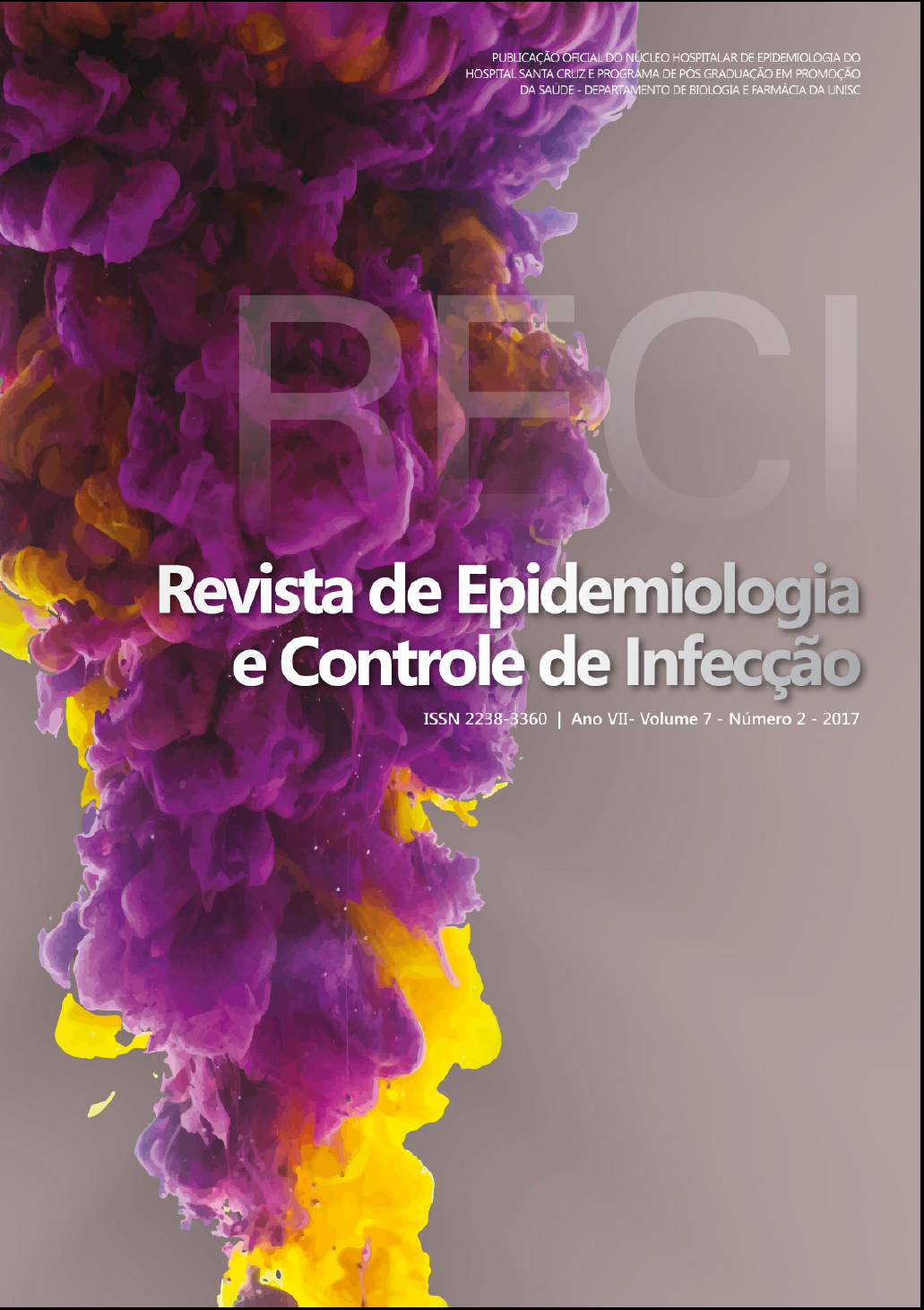Tuberculosis Historical Series Multidrug-Resistant (MDR-TB) in theStateofPará, Brazil, 2005- 2010
DOI:
https://doi.org/10.17058/reci.v7i2.7691Abstract
Background andObjectives: Tuberculosis, Multidrug-Resistant (MDR-TB) is a major challenge to be faced by their difficult treatment and control as well as the large number of affected people. This study aimed to evaluate the historical developmentof MDR-TB in thestate of Pará in 2005 to 2014. Methods: descriptive study, retrospective time series and a quantitative approach. The selected data wereall cases of MDR-TB occurred between the years 2005-2014 in the State, provided by the Secretary of State for Public Health of Pará (SESPA) and data analysis used the Microsoft Excel 2010® software. Results: There was a reduction in the percentage of high cure and in 2006 the highest rate (92.6%) and in 2014 the lowest (46.7%). With regard to the abandonment of the treatment there was an increase in the evolution of this indicator. The fail urehad the highest percentage in 2013 (8.8%), followed by the year of 2014 (6.7%). Regarding the deaths, the peak occurred in 2008 (18.9%) followed by 2007 (13.6%). Regarding the incidence rate of the disease, it was observed that there was a reduction over the analysis period. Conclusion: It was possible to know the evolution of the characteristics of MDR-TB in thestate and also noted that there were improvements in rates of disease in our state. In this context, it empha sizes the importance of public policies to control the disease more effective and the encouragement of research for the epidemiology of multidrug resistance in our state.Downloads
Downloads
Published
How to Cite
Issue
Section
License
The author must state that the paper is original (has not been published previously), not infringing any copyright or other ownership right involving third parties. Once the paper is submitted, the Journal reserves the right to make normative changes, such as spelling and grammar, in order to maintain the language standard, but respecting the author’s style. The published papers become ownership of RECI, considering that all the opinions expressed by the authors are their responsibility. Because we are an open access journal, we allow free use of articles in educational and scientific applications provided the source is cited under the Creative Commons CC-BY license.


